Maemo Leste - Ninth Update (March till August) 2019
It's been way too long since our eight update. A lot of things happened and we're still making steady progress.
General direction & Alpha status
The last couple of months has been dominated by work on cellular support and the upcoming PinePhone and PineTablet devices. The Pine64 project plans to start shipping the PinePhone a couple months from now, and we hope to have a usable-enough image so that the PinePhone can ship with the option of having Maemo Leste installed. This might also explain the focus on the modem/cellular work, which this article will discuss in greater detail later on.
The N900 Alpha milestone status is looking quite good, with a couple of (relatively minor) changes remaining, the most prominent being completion of the virtual keyboard package, we need to add monitoring of the keyboard slide status. This should be a day of work at most. The other meaningful (non bug fix) addition will be welcome application, as pioneered by Pavel.
We've seen more and more people join the IRC channel, get a device to develop on, and slowly help porting / adding new applications, so that's exciting!
Software additions & Connectivity
In the connectivity domain there's been a couple of things going on, connui-cellular was ready to be ported to ofono, the daemon that interfaces with the modem. Freemangordon started working on libicd-network-ofono, the icd2 plugin that will allow for setting up GPRS/UMTS/LTE data connections, and Freemangordon and Wizzup have been working on porting connui-common and connui-cellular to ofono. While porting, effort is been made to support multiple modems and dual sim setups. Maemo supported neither, so it will require some architectural changes down the line.
The tracking issue for 3G data support can be found seen here: https://github.com/maemo-leste/bugtracker/issues/76
connui-cellular
connui-cellular is a big package that contains a lot:
- Shared code (library) to interface with the various cellular daemons
- Control panel (Settings) applet to:
- Set up call forwarding
- Set up / change what radio technologies should be used (2G, 3G, etc)
- Set up roaming options
- Change, set or reset pin code for the sim card
- Hildon-home applet to show the operator name on the desktop
- Hildon status bar applet to show the signal strength, radio access technology, sim card status and more.
- Dialogs to enter pin codes for a sim card
- Roaming related dialogs.
So this is a very important package to have (fully) working. Porting it to ofono requires replacing a ton of functions, mostly in the shared code. An effort is being made on the ofono-port branch.
There are two tickets open to track this progress in (they should probably be merged):
- https://github.com/maemo-leste/bugtracker/issues/195
- https://github.com/maemo-leste/bugtracker/issues/256
While it's still work in progress, the operator name widget and the status bar applet is already mostly functional, as can be seen on this Nokia N900, being connected to the Dutch operator KPN, over 3G.
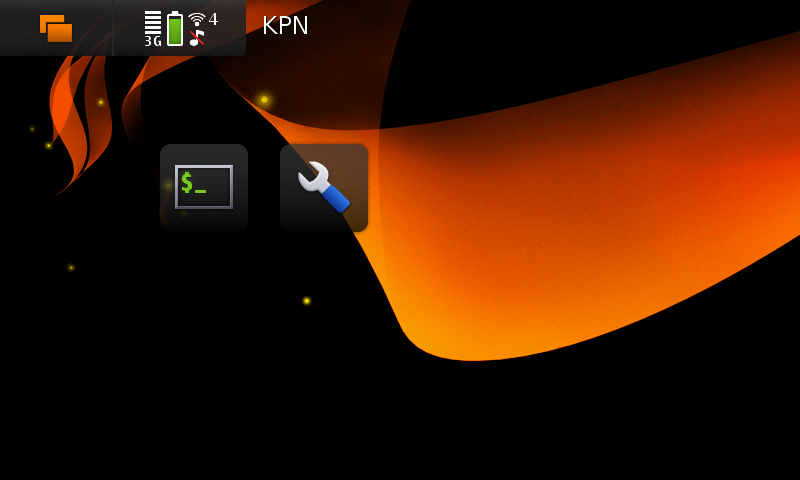
Maemo did not support 4G/LTE at all, so we also added that, as can be seen in this virtual machine using a modem via usb-passthrough:
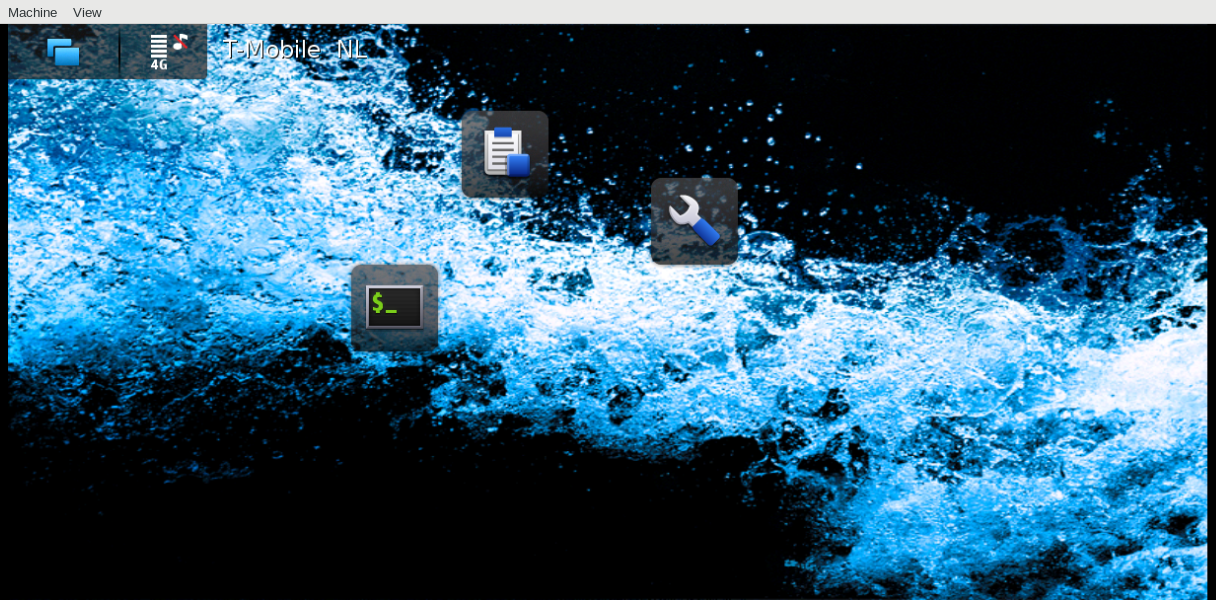
(Thanks to sicelo for creating the logo - and before you ask, yes, we're going to switch from 4G to LTE as a logo text)
The following pages on the wiki contain some more information (although some of it may surely be outdated):
libicd-network-ofono
As mentioned, work has started on libicd-network-ofono, the icd2 plugin that will allow setting up a data connection. Currently the plugin will find modems, and provision them. The connection will then show up in the usual connection dialog:
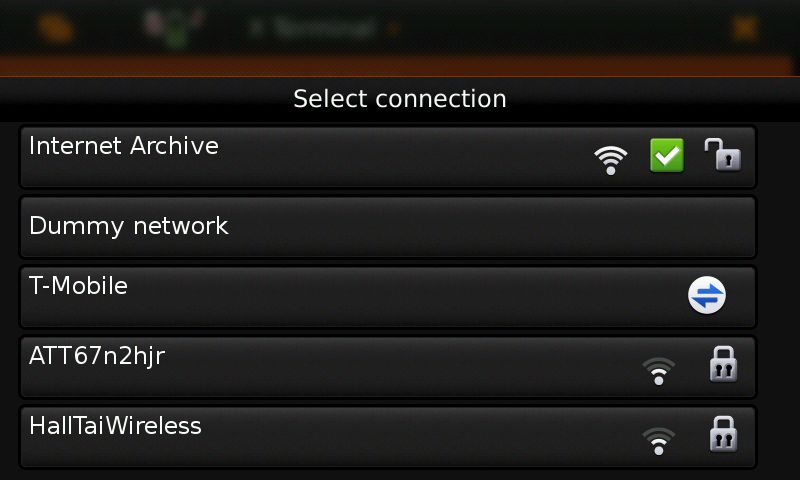
And if you select it, it will power up the modem, but not yet connect you to a data network:
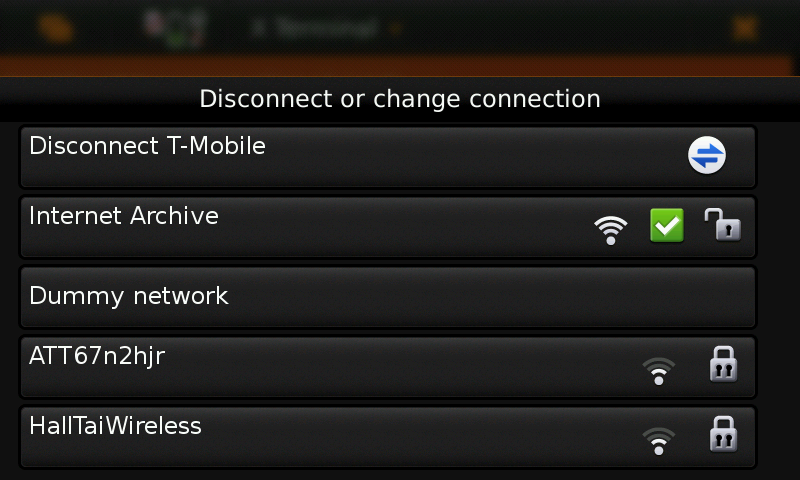
There's more work to be done in this area - and help is appreciated:
connui-common
connui-common contains (as the name suggests) common code shared within the connui stack. It has also seen porting to libgofono.
Recently in an effort to migrate all our packages to the upcoming Devuan release, we upgraded the build system, but as a result, dialogs were being installed into an architecture specific path, which is the way it's supposed to be, but this resulted in certain dialog plugins not being loaded at all. Ultimately, it meant that you could no longer get any wireless connection dialog when you updated your system. The bug had apparently existed for a while, but it has now been fixed, for more details see bug #251.
mode control entity
For a few months, changing the brightness no longer worked from the settings applet, this was due to the fact that there were several user dbus-daemon instances running, and applications were not able to chat with each other. This has now been fixed.
welcome application
We'll soon have a welcome application of some sorts, as documented in issue #229, to allow resizing of the rootfs, changing default passwords, and so on. And ... unlike most of the core Maemo software, this is written in Python, using pygtk.
alarmd
Maemo has a package called alarmd, which is used to set and manage alarms. The phone can wake itself even when it's completely powered off to alarm the user. alarmd and alarmclient are already built and can be installed to Maemo Leste, and a sample alarm run will look like this:
alarmclient -b label=Snooze,flags=TYPE_SNOOZE+WHEN_RESPONDED \ -b label=Stop,flags=WHEN_RESPONDED, \ -n title='Two Button Alarm',message='Hello there', alarm_time=5
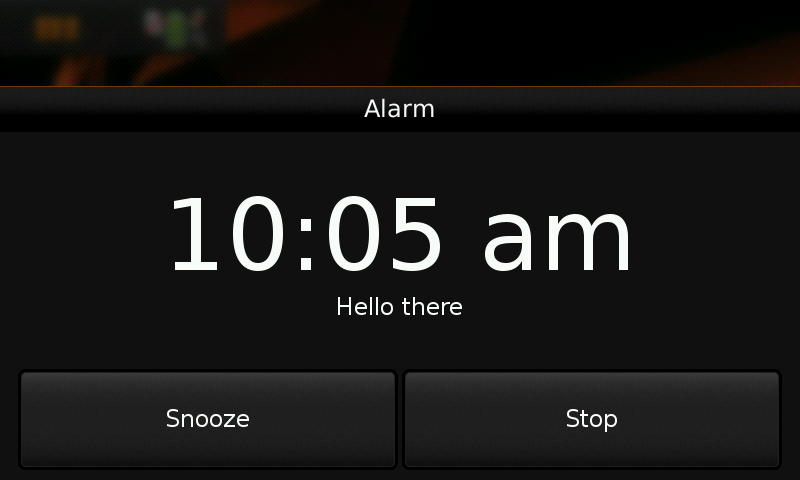
Audio
Currently, audio mostly just works on the devices that we support (Nokia N900, Motorola Droid 4, Pinephone devkit, Allwinner tablets...). However, for a phone to be particular usable we'll need to deal with audio policies sooner or later. That is: if you plug in a headphone, you expect the output of programs to go to the headphone jack. And if you don't have a headphone jack plugged in, you expect audio to go over the speakers. Unless you're being called, in which case you probably initially want the audio to go over the earpiece. Maemo's audio policies and routing were relatively complex and involved multiple pieces of software, some which are not open source.
That said, we do currently have opened up one of these packages, thanks to the hard work done by spinal84: https://github.com/spinal84/alsa-policy-enforcement
Games
Maemo Fremantle has lots of fun games packaged, lots of emulators too. Now that graphics acceleration on the Nokia N900 works quite well, and acceleration on most Mali devices will work quite well, we're starting to package some of the Maemo game frameworks and games.
Keep in mind that a lot of games are already available from the Debian repositories, and many of them will just work.
If there's a specific game/app you'd like to see ported, feel free to add it to this list on the wiki: https://leste.maemo.org/Status/Games
The relevant issues are #18 and #238.
Here are some screenshots showing off the work done so far for Mahjong and Marbles:
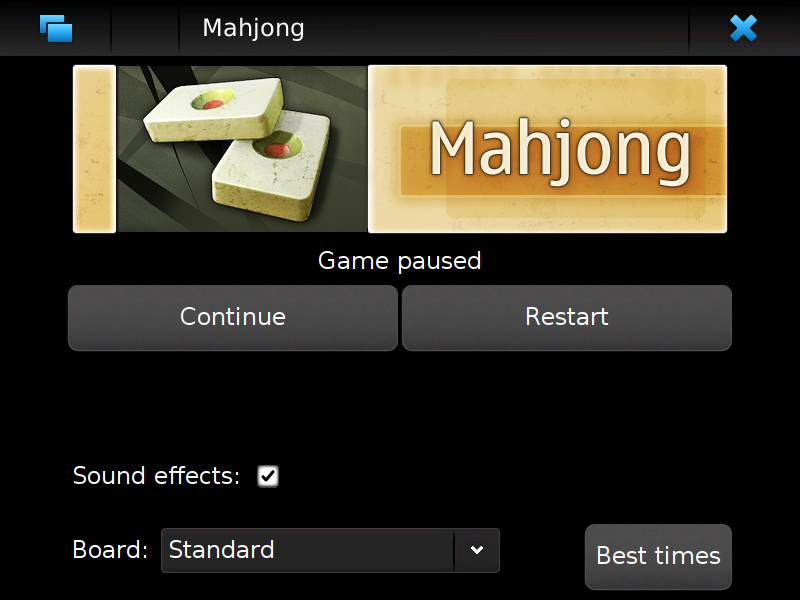
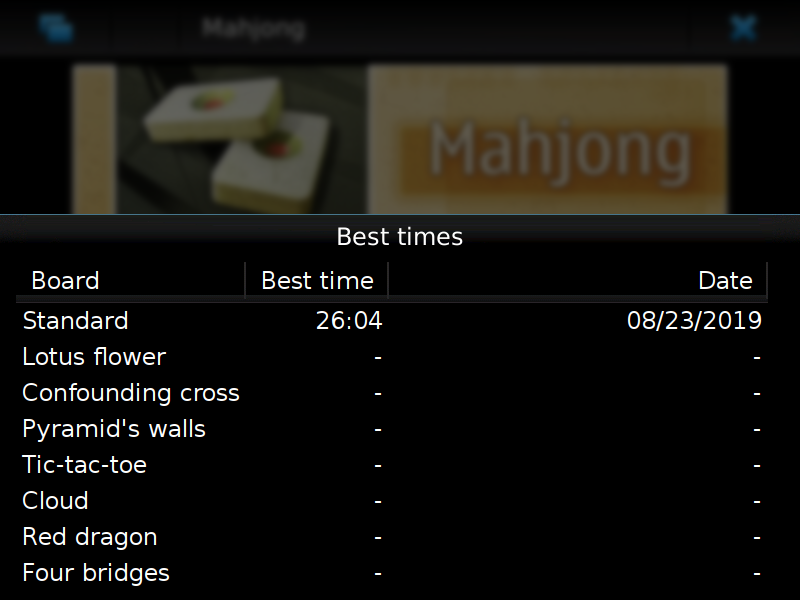
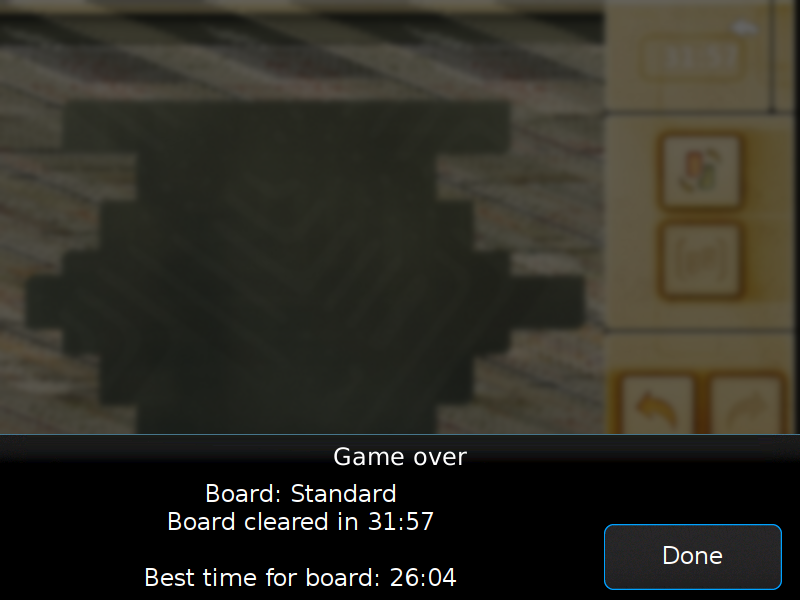
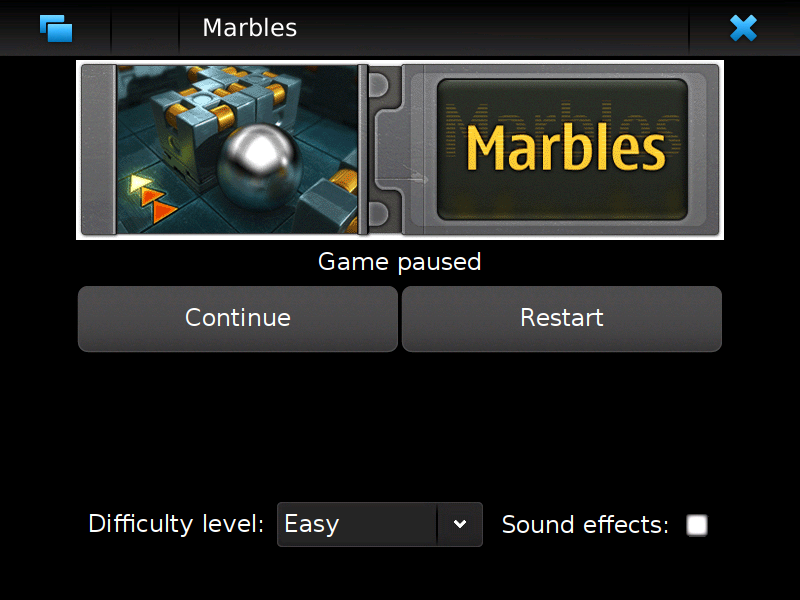
SMS & Calls
As part of the connui work, we also tried to make telepathy (the GNOME messaging backend/daemon) work with ofono. After installing telepathy-ring, which was already packaged in Debian (!) and adding a tel account through Empathy per these instructions , we were able to send and receive SMS texts. It was surprisingly easy. This should work on the Nokia N900, Motorola Droid 4 and Pinephone too. The UI is not particularly usable yet (it won't show you a new window if you get a text from a new/unknown number, and it uses gtk3, we need to add our gtk3 port), but it's a great start!
One caveat is that the Debian version also trails upstream quite a bit: https://git.merproject.org/mer-core/telepathy-ring - so we'll probably have to package our own version eventually.
This should theoretically also work for calls, but the SIM card that was used in this test doesn't allow for calls.
Here's a screenshot of the UI in action, sending a SMS to a Maemo Fremantle device from Maemo Leste, and the receiving a response from the Maemo Fremantle device:
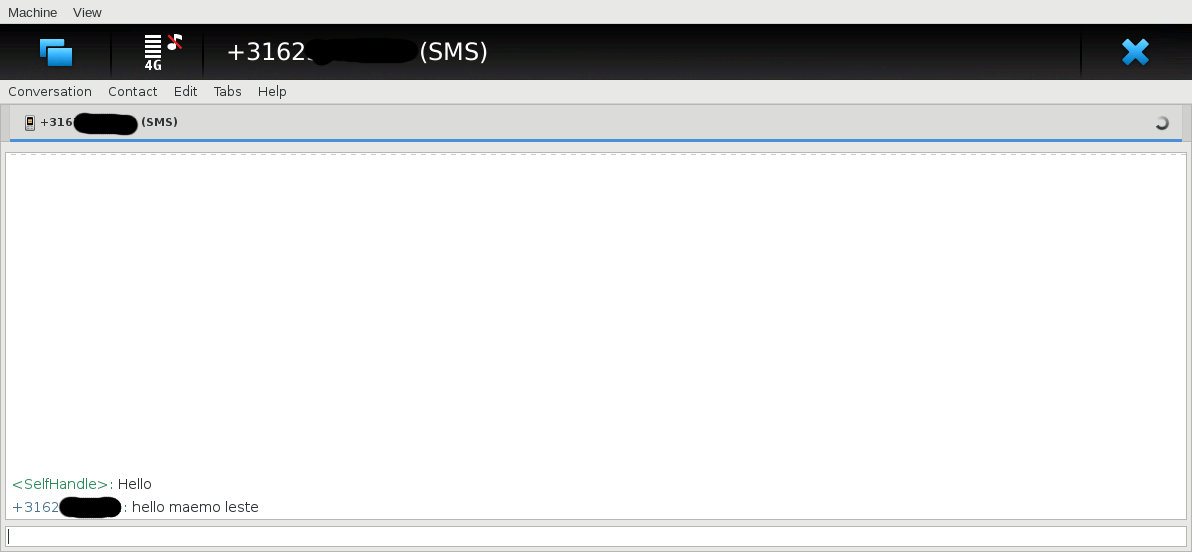
Python support
Maemo had pretty decent python support and we're also planning to bring some of that over pretty soon too, so that we can port and import more packages from Maemo Fremantle. Maemo Fremantle uses Python 2.5, so there's likely some porting work involved. Most of the Fremantle PyMaemo work is stored in this repository: https://vcs.maemo.org/svn/pymaemo/ (of which we also at least locally have a git-svn version).
We're looking for someone to help us with this, see issue #260 for more details.
Device support & Kernel work
There's been exciting progress on the PowerVR (GPU for Nokia N900, Motorola Droid 4 and other devices) and Mali-400 (GPU for the PinePhone, PineTab, etc) drivers. Lima (the Mali-400 driver) has been merged to mainline Linux (so it's included in the kernel by default) and mesa (the open source 3d library) also merged the lima backend.
PowerVR
Nikolaus was able to get a binary/reference implementation to run on Linux 5.3-rc4, with some patches and glue code, and basic demos work:
https://marc.info/?l=linux-kernel&m=156577301216115&w=2
After that, others picked up some of the work and as a result it should now be easier to test/load PowerVR glue code.
Given that basic demos seem to work, we should attempt to load the powervr module with a matching binary/reference implementation for the Droid 4, and hope that it loads. Getting acceleration in X11 should then be possible (as documented previously) using dri3wsegl. And perhaps we can move the Nokia N900 to using DRM instead too, at some point.
Next steps are documented in the repository, here:
https://github.com/openpvrsgx-devgroup/linux_openpvrsgx/blob/letux/latest-pvr/drivers/staging/pvr/TODO
Lima
There has been quite some activity with Lima, and after being able to run hildon-desktop with lima back in 2018, we expect the performance and stability to be a lot better now. Once we fix a bug in hildon-desktop, we will record demos of Maemo Leste on the PinePhone and PineTab using the Lima driver.
Nokia N900
Recently, the radio transmitter on the Nokia N900 started to work, and that is now reflected in the Nokia N900 status page
We also enabled various features in a newer kernel:
- Vibration driver is now enabled, and can be tested using fftest.
- iptables/nftables options have been enabled to allow for nat to share phone connections with PCs
The stable release channels also got all the latest PowerVR work, so a simple apt update && apt upgrade should land users with the fastest PowerVR bits.
Motorola Droid 4
The Motorola Droid 4 modem has been working in mainline for a while, but recently some more fixes made the modem work decently with a work-in-progress ofono driver. It's now possible to make calls, send SMS, receive SMS and use internet connections. We aim to package a newer kernel with these fixes and an ofono with enabled backend when we find some time (or when someone steps up to do this...)
Additionally, most of the patches on top of mainline for the Motorola Droid 4 have been merged, reducing potential maintenance burdens, and making it easier for others to build their own kernel (previously finding the right patches and the right versions of patches was a little tricky)
PinePhone & PineTab
As previously discussed, Pine64 is creating a Phone meant to run FOSS mobile platforms, for the community, by the community. They are also making a Tablet (which they have also kindly given to us).
They aim to produce the actual phone early 2020 and have generated some press for Maemo Leste: https://liliputing.com/2019/06/pinephone-149-linux-smartphone-could-support-ubuntu-sailfish-maemo-luneos-and-more.html
Through collaboration and the already amazing linux-sunxi project we have device trees and kernels that work quite well on the "Don't be evil" devkit:
https://gitlab.com/pine64-org/linux/wikis/Don't-be-evil-devkit
Back in April we made a video showing (64 bit arm) Maemo Leste running on the devkit, without hardware acceleration (apologies for the poor video quality, we'll do a better one soon):
There are also images available for download (probably won't do you much good unless you have a devkit - and they didn't make that many). We also have a PinePhone device page documenting the current kernel support status.
In early September we hope to pick up a PinePhone prototype. Hopefully we'll soon also be able to get some images for the PineTab, as we believe Maemo Leste should work quite well on tablets too.
Infrastructure & Distribution
We have migrated our Mediawiki instance (https://leste.maemo.org) and our Jenkins (https://phoenix.maemo.org) to a new machine with faster storage and more RAM.
armel builds have been disabled , as we currently have no devices that need armel. We might enable armel builds again when we need them.
We've also been working on migrating the Devuan Beowulf (Debian Buster), most of the work is just porting packages to a newer debhelper version, and help here would be much appreciated.
Community & Documentation
We've been continually but slowly been documenting device support status and the status of the various core components. There is still a lot to be done to improve the wiki, though.
Next on the list will be a tutorial on how to start developing with Maemo Leste, which has been requested several times.
Closing notes / Direction
While we could soon make the N900 Alpha release, we've shifted gears a little more to get the cellular code and UI in place. One reason for this is that we hope to have a usable phone, SMS and contact application ready before the Pinephone goes on sale. We'd love for Maemo Leste to be developer (and maybe FOSS-enthousiast) ready when the PinePhone is ready.
What that means is that we will need the following in place:
- 2G/3G/LTE data connections working
- Usable (ish) interface for SMS and calls.
- Usable (ish) contacts interface
- (Somewhat sane) audio routing - switching between headphone, earpiece and speakers.
- Some contacts UI
It would be great if we could also have:
- Qt5 and Gtk3 port ready
Interested?
If you're interested in specifics, or helping out, or wish to have a specific package ported, please see our bugtracker.
We have several Nokia N900 and Motorola Droid 4 units available to interested developers, so if you are interested in helping out but have trouble acquiring a device, let us know.
Please also join our mailing list to stay up to date, ask questions and/or help out. Another great way to get in touch is to join the IRC channel.
If you like our work and want to see it continue, join us!